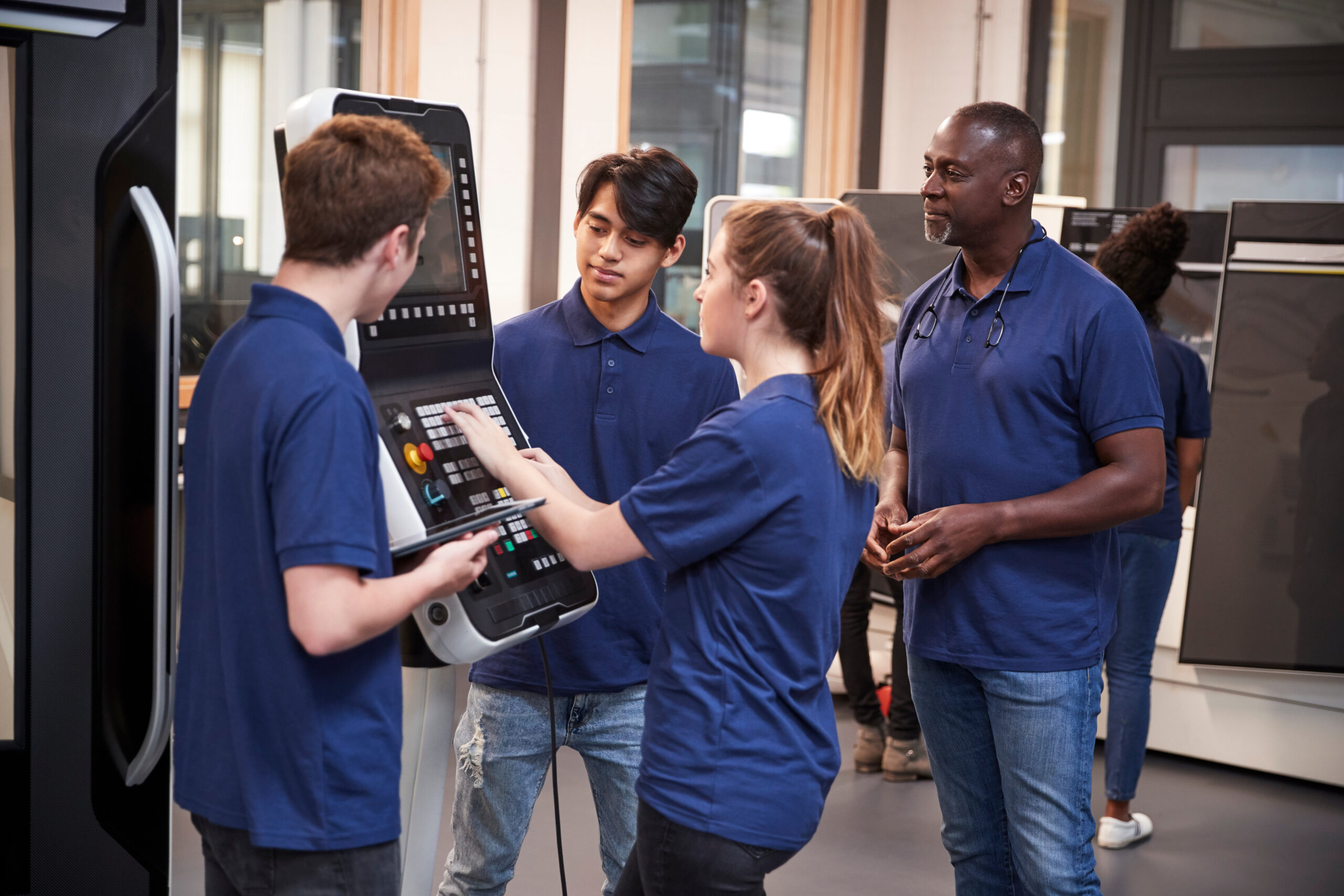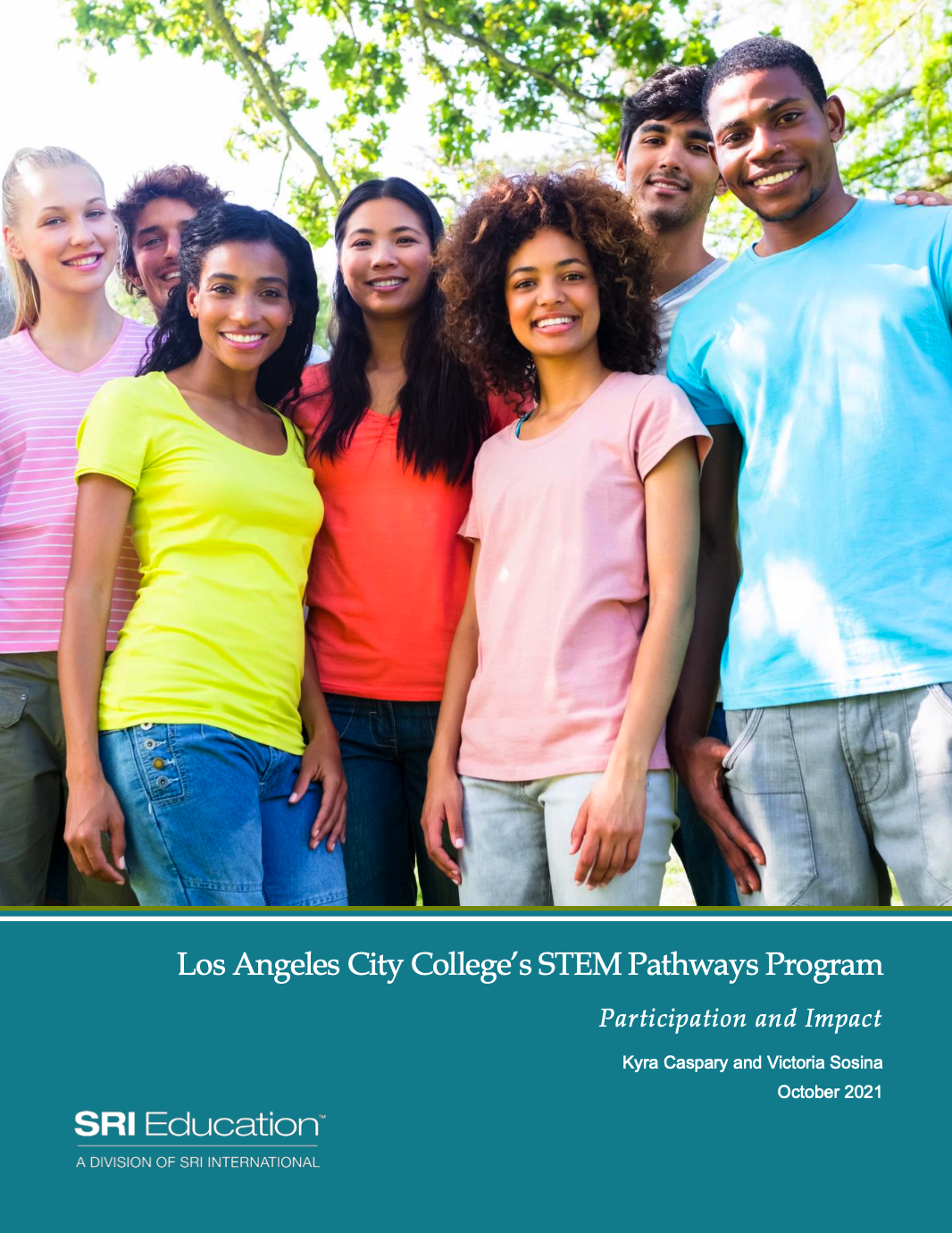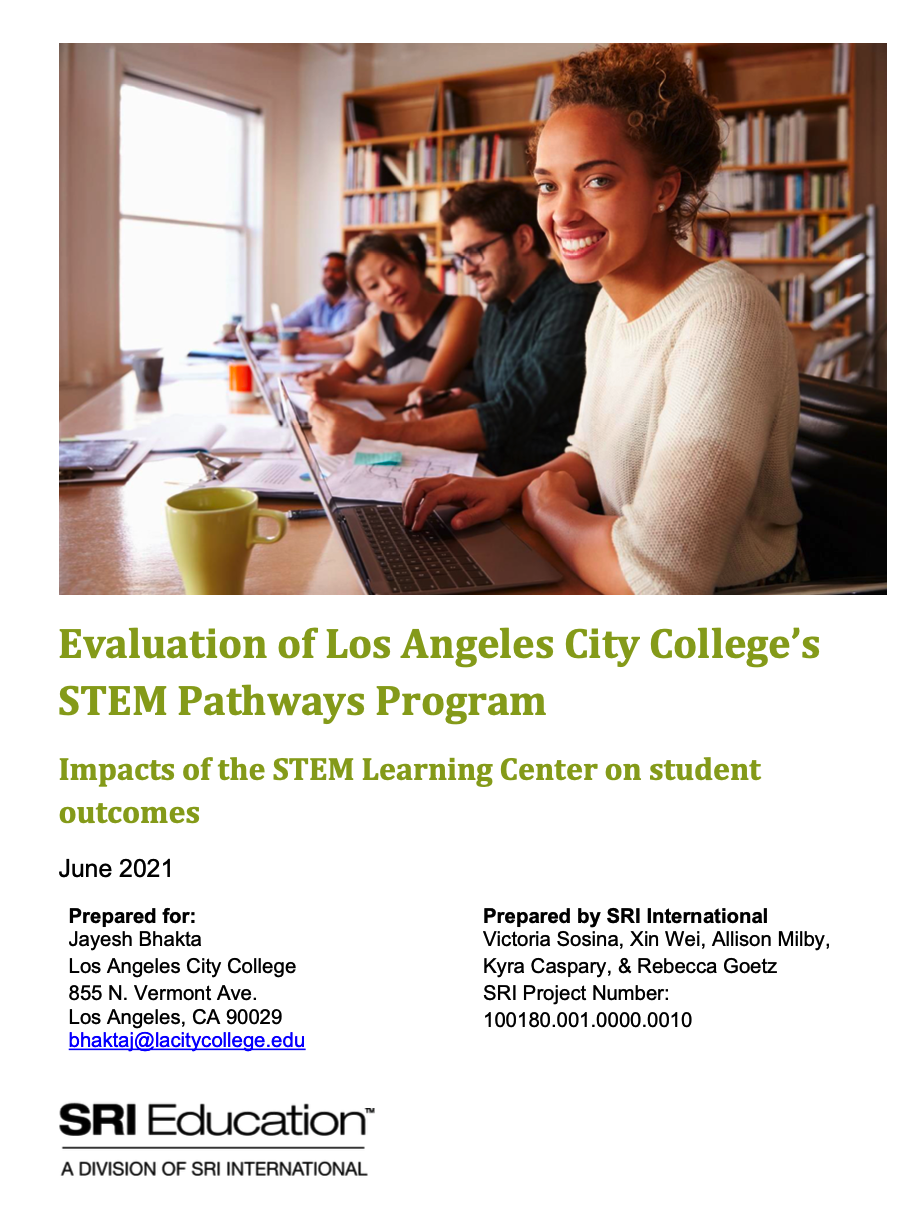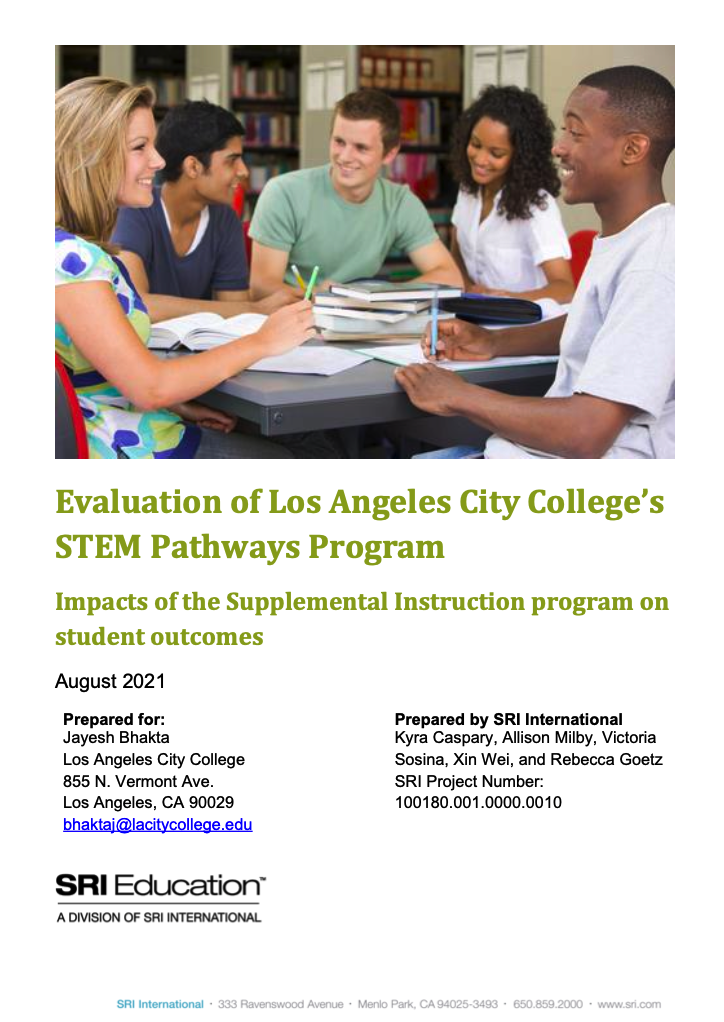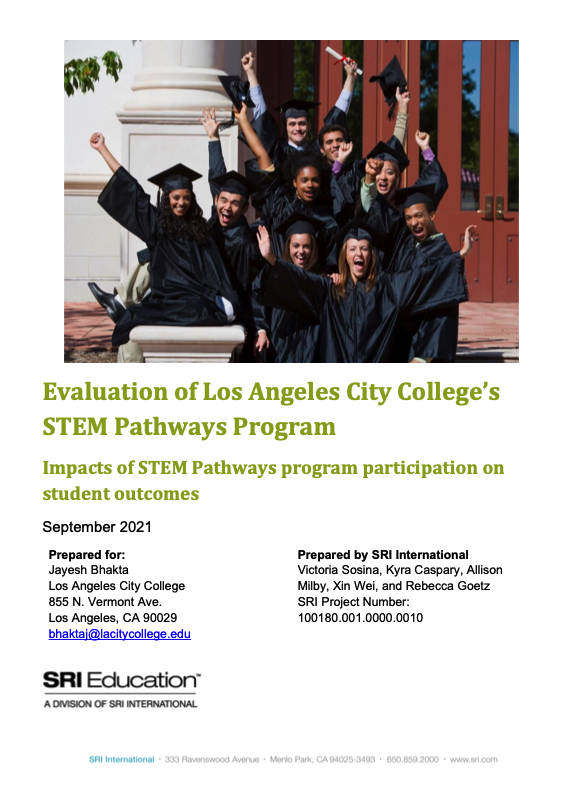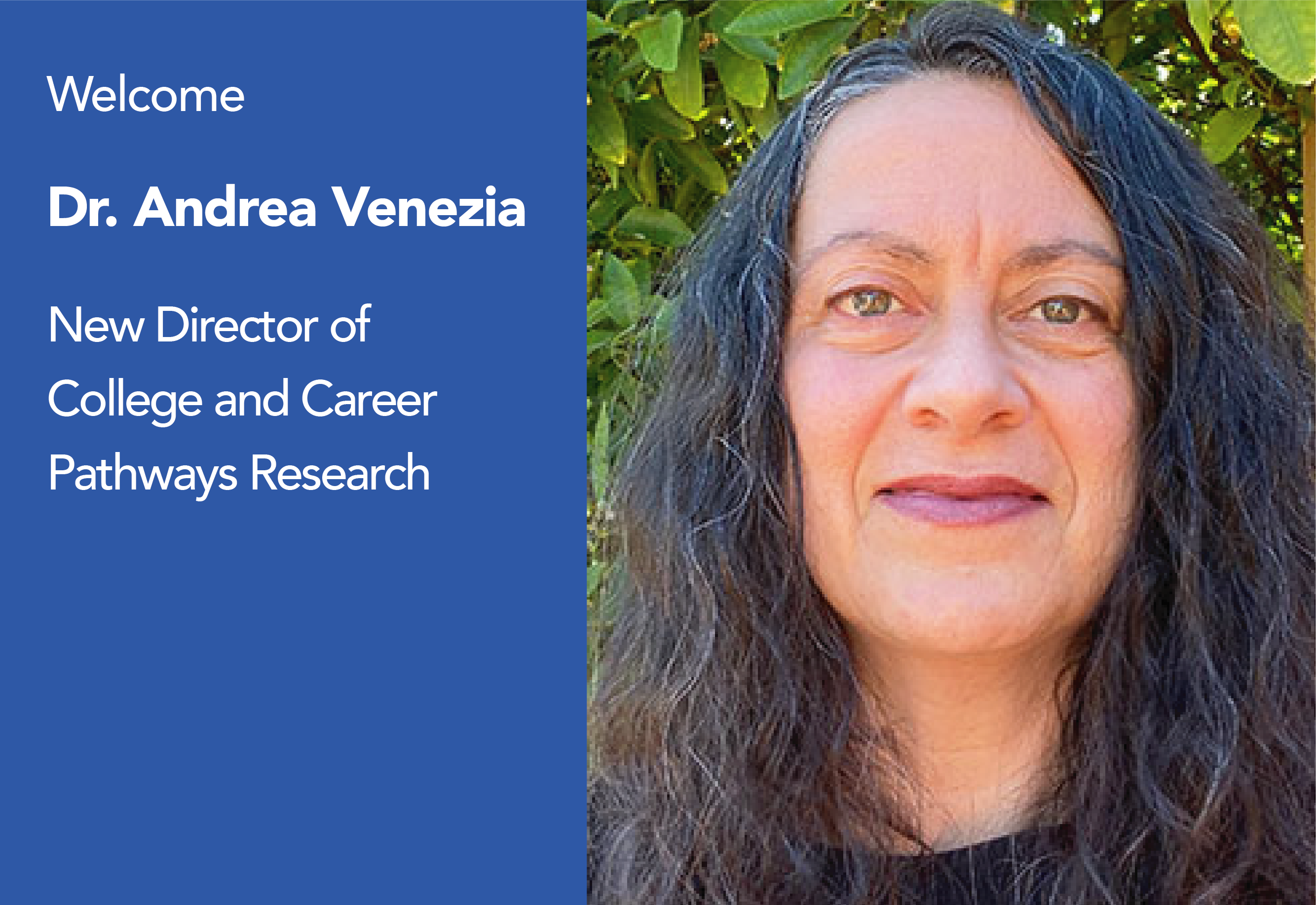As workplaces change rapidly due to new technologies and shifting global economics, employers call on community college career and technical education (CTE) instructors to ensure their graduates have not only technical skills, but also the professional capabilities to communicate, collaborate, persist through challenges, and engage in lifelong learning.
In the November 2024 webinar Building Students’ Motivation and Learning Skills in Online Courses, researchers from the Postsecondary Teaching with Technology Collaborative shared insights from the Collaborative’s formative study of technology-enabled instructional strategies designed to support students’ self-directed learning in online and hybrid STEM courses.
In partnership with Achieving the Dream, SRI is studying how using OER materials can facilitate improved educational experiences for college students through easier access to learning materials and transformative teaching and learning practices.
SRI Education is working to fill the gap in evidence on changes in instruction from the use of open educational resources (OER) in community colleges. Building on the prior study of the OER Degree Initiative, we are investigating how the use of OER can enable what are sometimes called “open educational practices” (OEP) and equity-focused instruction in community college courses.
Los Angeles City College launched the STEM Pathways program in 2016 to improve STEM degree completion and transfer to 4-year colleges, particularly for low-income and Latinx students. With funding from the U.S. Department of Education, the program offered a variety of supports including Supplemental Instruction (SI), peer tutoring in STEM, a book and technology loan … Continue reading Los Angeles City College’s STEM Pathways Program: Participation and Impact
Los Angeles City College launched the STEM Pathways program in 2016 with funding from the U.S. Department of Education. The intent of the STEM Pathways program was to improve STEM degree completion and transfer to 4-year colleges, particularly for low-income and Latinx students, through a variety of supports. The STEM Learning Center, a drop-in peer … Continue reading Evaluation of Los Angeles City College’s STEM Pathways Program: Impacts of the STEM Learning Center on student outcomes
Los Angeles City College launched the STEM Pathways program in 2016 with funding from the U.S. Department of Education. The intent of the STEM Pathways program was to improve STEM degree completion and transfer to 4-year colleges, particularly for low-income and Latinx students. The program provided a variety of supports including Supplemental Instruction (SI) for … Continue reading Evaluation of Los Angeles City College’s STEM Pathways Program: Impacts of the Supplemental Instruction program on student outcomes
Los Angeles City College launched the STEM Pathways program in 2016 with funding from the U.S. Department of Education. The intent of the STEM Pathways program was to improve STEM degree completion and transfer to 4-year colleges, particularly for low-income and Latinx students. The program offered a variety of supports including Supplemental Instruction (SI), peer … Continue reading Evaluation of Los Angeles City College’s STEM Pathways Program: Impacts of STEM Pathways program participation on student outcomes
Over the past 2 decades, the United States has seen enormous growth in the science, technology, engineering, and mathematics (STEM) fields. This growth has been particularly strong for high skill technician jobs in technology and computer science, which offer a promising path to the middle class for many Americans.
College instructors see it all the time. Each semester brings bright students who easily grasp new ideas, but may struggle with assignments or studying for exams. These students can excel when explicitly taught skills to manage their own learning, research conducted by Dr. Omar Faison at Virginia State University has found. If students do not have these skills, online courses can be particularly challenging. With more college courses moving online, students need self-directed learning skills more than ever.
Dr. Andrea Venezia joined SRI Education in May as our new director of college and career pathways research, co-leading the program area with Dr. Miya Warner. Most recently, Andrea was a professor of public policy and administration at Sacramento State University and executive director of the Education Insights Center.
The transition from high school to college can be difficult in the best of times, let alone during a global pandemic. Our previous post on Supporting Postsecondary Transitions During COVID-19 offers practical resources for supporting students and families navigating the college application and enrollment process during the pandemic.

